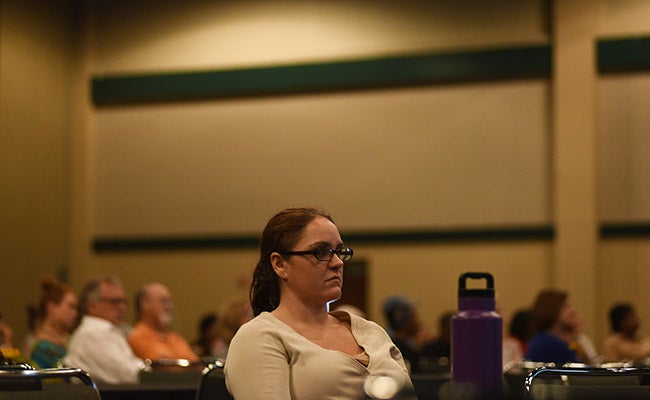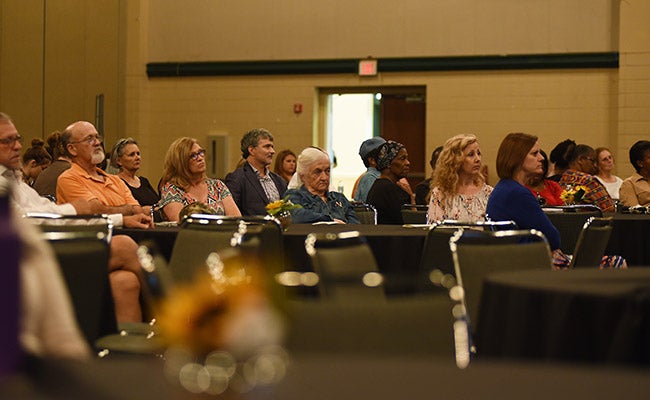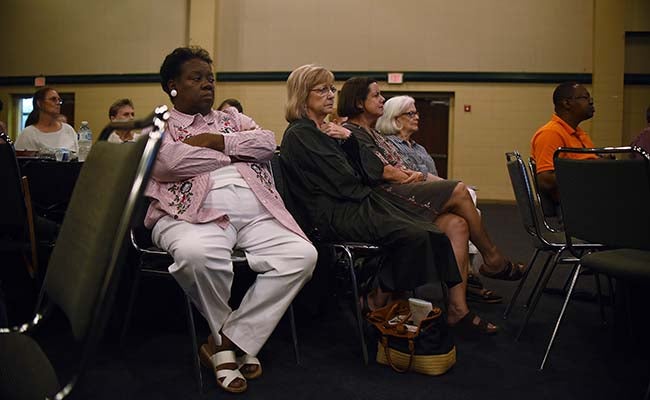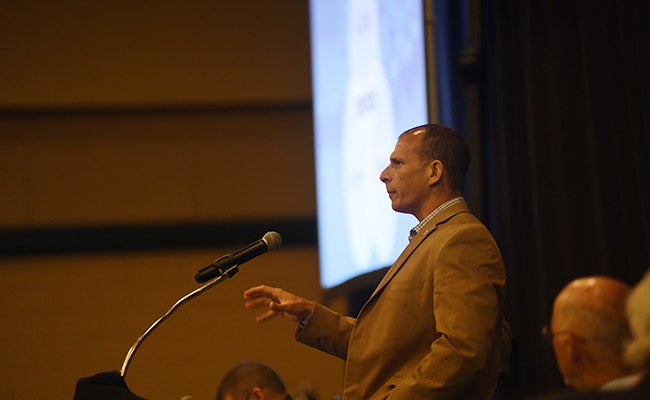Community hears stories from opioid crisis at town hall meeting
Published 11:48 pm Tuesday, June 19, 2018
NATCHEZ — With Mississippi and the entire nation facing a plague in the form of opioids and other addictive drugs, a town hall meeting in Natchez had messages of hope and challenged residents to save lives.
“Are you going to be bold enough to say something to save someone’s life?”
Ann Rodio with the Mississippi Department of Mental Health asked residents that question when she charged them with the task of making a difference.
Dozens gathered for the Stand Up Mississippi’s initiative against the opioid epidemic to inform themselves on how prolific the opioid epidemic has become, hear a compelling first-person testimony about addiction and learn how they can help themselves and others beat the epidemic here in Adams County.
Statistics from Tuesday night’s meeting — the 24th held by the group statewide — demonstrate just how lethal opioids have been.
“(When abused), they are hands down the deadliest class of drugs that we have seen,” said Lt. John Harless with the Mississippi Bureau of Narcotics.
Harless said at just 5 percent of the world’s population, the United States consumes 80 percent of opioids manufactured worldwide. With numbers like those, in 2016 approximately 174 Americans died every day of accidental drug overdoses, equating to one death every eight minutes. Preliminary statistics for 2017 are even worse, he said, coming to approximately 74,000 fatal overdoses.
He pointed to Fentanyl as one of the most potent opioids, with 80 to 100 times the potency of morphine and “cousins” of the drug such as Carfentanil having approximately 10,000 times the potency of morphine.
Making matters more alarming, he said, is the trend of counterfeit opioids, which often end up going to unsuspecting buyers on the street who overdose because they do not realize the potency of the drug they are taking.
Later in the meeting, attendees heard a more anecdotal version of opioids effects through the heart-wrenching story of James Moore and his son, Jeff.
James Moore, a longtime owner of Moore’s Bicycle Shop in Hattiesburg, told of Jeff’s battle with addiction, which began at a young age following prescriptions for certain learning disorders discovered through his schoolwork.
After a rollercoaster cycle of treatment, improvement and relapse, James Moore said one week came when he had his son back — Jeff was living with his parents, working at the bike shop and attending meetings and searching for jobs daily.
On the eighth day, James said no one had heard from his son when he then went to Jeff’s house, where he was with his two beloved schnauzers, Ziggy and Teddy.
“The dogs met me at the door and led me through the kitchen and to the living room, where Jeff was on the sofa,” James said.
Though losing his son was devastating, James said throughout the years he had come to finally understand what Jeff was going through, and that his addiction — like all others — was a disease. But unlike most diseases, James said, this one does not get the typical sympathetic reception from the general public.
“It’s the only disease that robs you of your mind, body and soul,” he said.
Rodio talked about the stigma of addiction, which she said only serves to prevent others from getting the help they need.
She went on to discuss methods of treatment, the easiest being to reach out and ask for help from any of the 14 community mental health centers sponsored by the DMH. She also pointed to the state’s approximately $3.6 million State Targeted Response Opioid Grant. The grant, she said, has helped by distributing Narcan across the state — which Rodio said has saved 47 lives already this year — and expanded access to treatment for those who need help.
Though he appreciated the panel’s presentation. One local pain intervention figure, Dr. Miguel Figueroa said Mississippi must to do even more to prevent abuse, such as educating patients more and cutting down on obesity and smoking statistics, both of which Mississippi struggles with mightily.
“In other words, I agree with what you’re saying, but it’s not going to be enough,” Figueroa said. “It’s like sticking your finger in the dam.”
Others also questioned what more could be done in the state, and Mississippi Department of Public Safety Commissioner Marshall Fisher tasked residents with making their voices heard by legislators.
“People in Congress in Washington, in the Senate, in the House, they work for us,” Fisher said. “It’s time that people like you in your districts talk to those people who work for you and tell them you want some changes made.
“They work for you. They will listen to you.”









